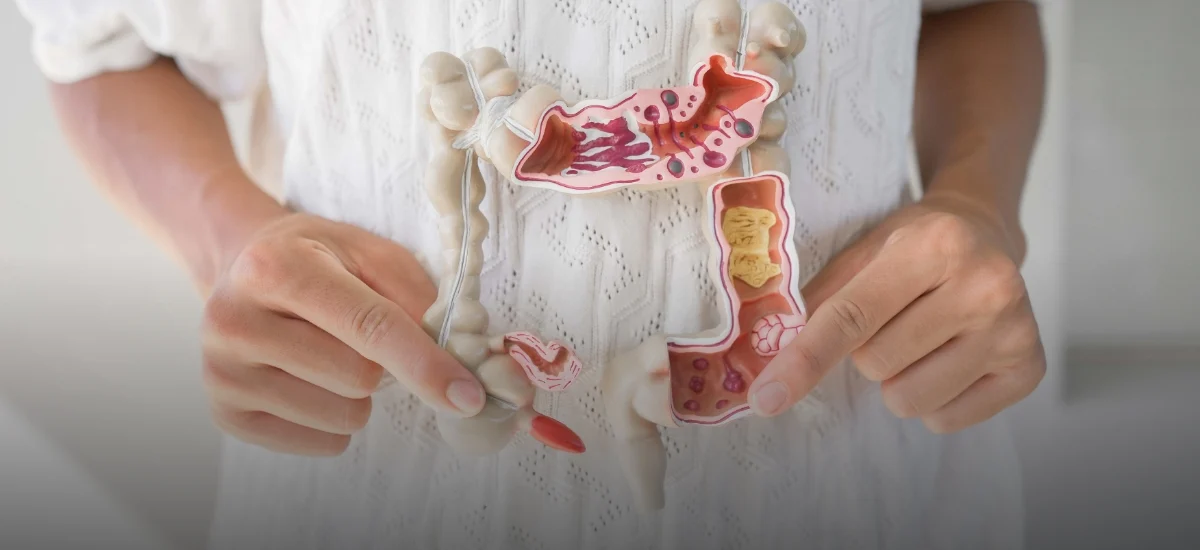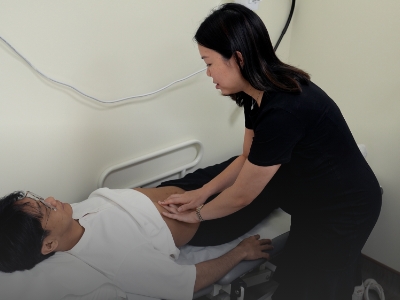Published on 26 August 2025
Are probiotics the real deal for digestion – or just another wellness trend? A doctor from the National University Polyclinics breaks down what works, what does not and how to keep your gut happy.
Probiotics have earned a place in the modern wellness lexicon as they are often linked to smoother digestion, less bloating and even stronger immunity. But are they really a game-changer or just another health trend with a clever label?
According to Dr Rebecca Goh, Resident Physician at the National University Polyclinics (NUP), probiotics are not a cure-all. But when used correctly, they can support certain aspects of gut health.
Good bacteria, explained
Probiotics are live micro-organisms – mainly beneficial bacteria – that already exist naturally in our digestive systems. When consumed in sufficient amounts, they may help improve the balance of our gut microbiota.
“They are available over the counter or by prescription and come in a variety of forms such as capsules, packets or food supplements,” said Dr Goh. Depending on the strain, probiotics may support the gut lining, help absorb nutrients or even influence the immune system.
Some can crowd out harmful bacteria or reduce inflammation by producing short-chain fatty acids. Others may enhance mucus production, which strengthens the gut barrier and protects against unwanted pathogens. “The strongest evidence for probiotics is in preventing and treating antibiotic-associated diarrhoea, and in managing some of the symptoms in ulcerative colitis and irritable bowel syndrome (IBS),” Dr Goh said.
IBS typically involves abdominal discomfort and disrupted bowel habits such as cramping, bloating, flatulence, diarrhoea or constipation. While probiotics are not a primary treatment, they may help some people manage symptoms.
That said, if you are otherwise healthy, you may not need probiotic supplements at all. “Our digestive systems naturally already have a diverse microbiome of bacteria including beneficial bacteria,” Dr Goh said.
Rethinking popular beliefs
Not all probiotics are created equal – and they are certainly not a one-size-fits-all solution nor a miracle cure. Many people assume that taking any probiotic will do the trick, but the truth is far more nuanced.
"Gut microbiota varies significantly between individuals, and what works for one person might not for another," said Dr Goh. She added that as research improves, recommendations are likely to become more targeted and personalised.
Even among products labelled as probiotics, the ingredients can vary widely. “Commercially available probiotic preparations can contain vastly varying ingredients, strains and concentrations of probiotics,” she said. Some strains or combinations are more effective for specific conditions or even groups of people.
There is also the matter of what else is included in the product. A probiotic yoghurt may also be high in added sugars. Fermented drinks like kombucha might also contain a significant amount of sodium or caffeine.
While generally safe for healthy individuals, probiotics are not entirely risk-free. “There have been rare occurrences where critically ill or immunocompromised patients who took probiotics were subjected to serious bacterial or fungal infections of the blood,” said Dr Goh. She advised people with weakened immune systems or serious illnesses to speak to their doctor before taking supplements.
Relief for bloating and bowel troubles
One area where probiotics may be particularly helpful is in managing lactose intolerance. Some strains produce beta-galactosidase – an enzyme that helps break down lactose – which can ease symptoms like gas and bloating for those who are sensitive to dairy products.
They may also help relieve constipation. “Probiotics can ferment dietary fibre to increase the production of short-chain fatty acids in the gut, which can help to stimulate the contractions of the colon muscles to move stool along,” Dr Goh said. Small trials have shown that Lactobacillus casei Shirota and Bifidobacterium infantis can increase the frequency of bowel movements.
Again, probiotics are not a primary, standalone treatment for IBS. But some people have found that taking probiotics helps ease symptoms and improve their overall quality of life. Dr Goh recommended trying one strain at a time for at least four weeks. If there is no change after 12 weeks, it may be time to stop.
What to know before you buy
Deciphering the probiotic aisle can be overwhelming, especially when there is no universal labelling standard. In Singapore, probiotics are regulated either as food products under the Singapore Food Agency or as health supplements under the Health Sciences Authority. But current regulations do not mandate a minimum number of viable probiotic organisms for a product to qualify.
Dr Goh recommended paying attention to a few key details on the label. Look for the specific strain – different ones serve different purposes – and check the number of colony-forming units (CFUs), which indicates how many live organisms are present. For general use, 1 to 10 billion CFUs a day is typical.
Storage matters, too. Probiotics are sensitive to heat and light and may lose potency if not stored properly. Capsules with a special coating – called enteric-coated capsules – help protect the bacteria, so they survive stomach acid and reach the intestines intact.
Those with allergies or dietary restrictions should read ingredient lists carefully for fillers or animal-derived substances.
Food or supplement?
While fermented foods like yoghurt, kimchi and sauerkraut can provide probiotics naturally, the amount and effectiveness can vary depending on how they are made and stored. Some people may also find the taste or smell of fermented foods off-putting. “Supplements can provide a more concentrated, specific and consistent dose of probiotics compared to food sources,” said Dr Goh.
Supplements are typically recommended in small doses for general health. In some cases, higher doses are used to manage medical conditions, but this should only be done with advice from a doctor.
Some people may experience mild bloating or changes in bowel habits when starting probiotics, whether from food or supplements. These effects are usually temporary and subside as the body adjusts. However, long-term effects are still being studied. “Ongoing daily use of probiotic supplements without medical indication isn’t currently recommended,” said Dr Goh.
What else your gut needs
Easy tips to look after your gut When choosing probiotics: • Read the label carefully – Check for the strain type, CFU count (this refers to the number of live bacteria, usually measured in billions), expiry date and storage instructions. • Look for quality ingredients – If you have allergies or dietary restrictions, be wary of fillers and animal-derived components. |
Probiotics can be helpful, but they are not the only way to support digestive health. A fibre-rich diet – ideally 20g to 30g a day from fruits and vegetables – makes a significant difference. Regular exercise helps regulate bowel movements and keeps digestion running smoothly, too.
Dr Goh added that regularly consuming alcohol, painkillers, fried food or artificial sweeteners can upset the balance of gut bacteria or lead to digestive discomfort. She advised reducing them where possible.
Ultimately, probiotics are just one part of the picture. With the right strain and sensible use, they can support gut health – especially when paired with a well-rounded lifestyle.
Beyond probiotics, support your gut by: • Eating a balanced diet – Natural, fermented foods like yoghurt, kimchi and sauerkraut can be included in moderation. • Staying active – Regular exercise and physical activity helps keep your digestion moving. • Avoiding common triggers – Cut back on highly processed foods, excessive alcoholic drinks and artificial sweeteners. • Seeking medical advice when needed – Those with chronic conditions or weaker immune systems should speak to a doctor before starting probiotics. |
In consultation with Dr Rebecca Goh, Resident Physician, NUP.




